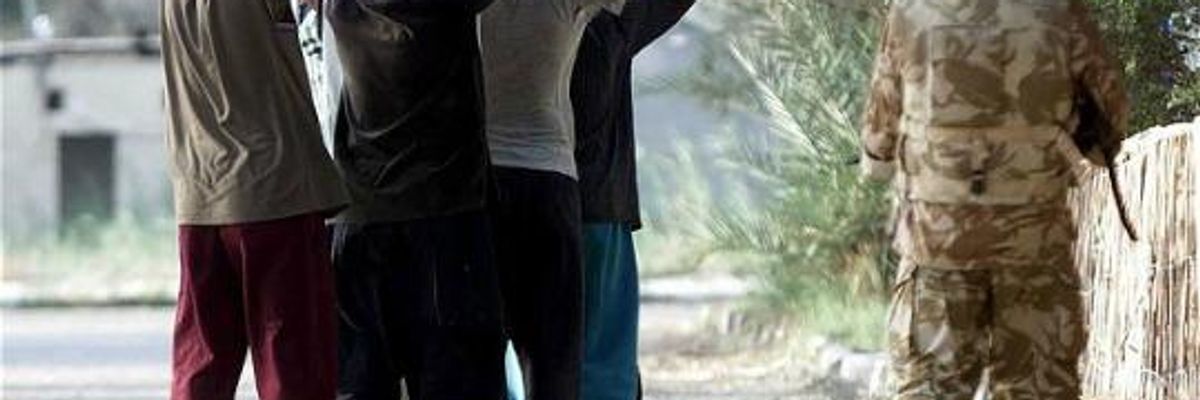Eleven years after the U.S.-led invasion of Iraq, not a single high-level official has been held accountable for the numerous war crimes perpetrated throughout the war. Yet, a Tuesday announcement that the International Criminal Court is re-opening a "preliminary" investigation into charges that British troops systemically perpetrated atrocities in Iraq raised the faint possibility that this could change.
"It is good news that the ICC is finally going to look at the extraordinary and serious war crimes and crimes against humanity in the Iraq War and the lead-up to it," said Phyllis Bennis, senior fellow at Institute for Policy Studies, in an interview with Common Dreams. "The bad news is that this is very late and the U.S. is not in the docket."
ICC Prosecutor Fatou Bensouda came to the decision after being presented with new evidence alleging the "responsibility of officials of the United Kingdom for war crimes involving systematic detainee abuse in Iraq from 2003 until 2008," according to an ICC statement.
In 2006, then-ICC prosecutor Luis Moreno-Ocampo turned down an investigation into UK abuses in Iraq after determining the acts did not have sufficient "gravity"--citing a supposed lack of victims, among other factors.
Yet new evidence presented by Germany-based human rights group European Centre for Constitutional and Human Rights and UK law firm Public Interest Lawyers indicates hundreds of Iraqi people have been abused by the UK military as a matter of policy stemming from the chain of command.
ECCHR and PIL evaluated testimony from more than 400 former detainees and selected for ICC review 109 of them--which together expose more than 2,000 inhumane acts from March 2003 to December 2008. Charges of abuse, including sexual assault, hooding, and food, water, and sleep deprivation, are summarized in a video produced by ECCHR:
International Criminal Court Communication on Torture in IraqThis video is about the ECCHR's ICC Communication on the responsibility of UK officials for war crimes based on systematic ...
In a statement following the ICC's announcement, the British government rejected the allegations of war crimes and indicated it is thoroughly investigating the charges, so ICC jurisdiction is unnecessary.
Yet, ECCHR argues, "UK officials have been all too reluctant to prosecute or investigate the high-ranking officials for the systemic abuses committed in Iraq."
"The reopening of the investigation represents a milestone for Iraqi victims and for international criminal law," said ECCHR General Secretary Wolfgang Kaleck.
Bennis says that it is far from certain that the ICC will press war crimes charges against top UK officials, but nonetheless, the possibility is "hugely important."
The UK is the only Western country that has faced a preliminary investigation by the ICC--a global body that the U.S. has refused to participate in.
"The refusal of the U.S. to put itself under the jurisdiction of international law is a huge impediment to the court's capacity to function as a global court," said Bennis. "It's not the only example. We see this in decisions to go to war despite UN opposition, as well as blatant violations of international law and war crimes, including attacks on civilians, torture, imprisonment without trial and assassinations."
Said Kaleck, "Those who violate human rights must be brought to justice regardless of how powerful they may be."

